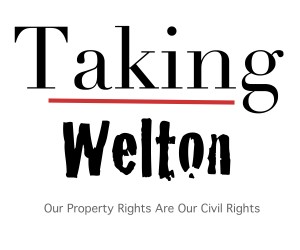FasTracks to private property
“But the party may soon be over for Fesch. Last year, RTD mailed him a notice of intent to acquire the property to make way for FasTracks, the agency’s $6.1 billion transportation project linking metro Denver and the suburbs. While Fesch’s property, which also includes a squat, two-story warehouse he rents to a manufacturing company, is not in the way of any actual rail, the agency says it needs a portion of it for infrastructure purposes.
“They’re working hard to take my property,” Fesch says of RTD. “They only need a sliver and conveniently drew a line right through my building.”
Fesch, 33, purchased the property in 2006, dreaming of one day converting the warehouse into a restaurant and bar, complete with a rooftop deck offering million-dollar views of the Denver skyline and Invesco. After meeting with Denver’s planning department, which Fesch said told him the property was a “gold mine” — smack-dab in the middle of a LoDo-type redevelopment project coinciding with FasTracks — Fesch bought it and started making plans.
….
For now, Fesch’s and Snyder’s cases are wending through the various stages of the condemnation process. According to RTD’s Tonilas, an offer based on the “highest and best use” of the property has been submitted to the owners; they in turn have had their property independently appraised on RTD’s dime. If negotiations on price reach a stalemate and the property owners continue to resist the acquisition, the case will go before a trial court.
“RTD will file a condemnation case to take possession of the property and will ask for a hearing very soon after it is filed, usually within 40 days,” Fields says. “RTD will have to prove it is truly condemning it for public purpose.”
If the property owner loses, the case then goes to the valuation phase to determine the property’s fair market value. Once compensation is paid to the owner, the agency acquires the property and can start construction. The problem, Fields says, is that the trial court’s determination isn’t the final word; the landowner can appeal to the Colorado Supreme Court (or even higher), which could take several years to resolve.
Marsella says the real losers in the uproar over eminent domain are the cities and counties.
“Their desire for mixed-use development to generate better tax revenues is being undermined,” he says. “If a site forever must be non-revenue generating, they’re the ones paying the price.”
But Steve Fesch disagrees, saying although he’s in favor of RTD’s FasTracks, he is convinced the agency is abusing its power.
“RTD could easily purchase the land they need from me and save the taxpayers hundreds of thousands of dollars in extra land acquisitions and legal fees,” he says. “But it appears they have their own agenda for my land.
“If I win this thing, that gives everyone else hope that they could win. But right now no one’s really paying attention. Until they open their mail one day and they become us.””
Cole, Rebecca. ColoradoBIZ Magazine 31 October 2008.
*
